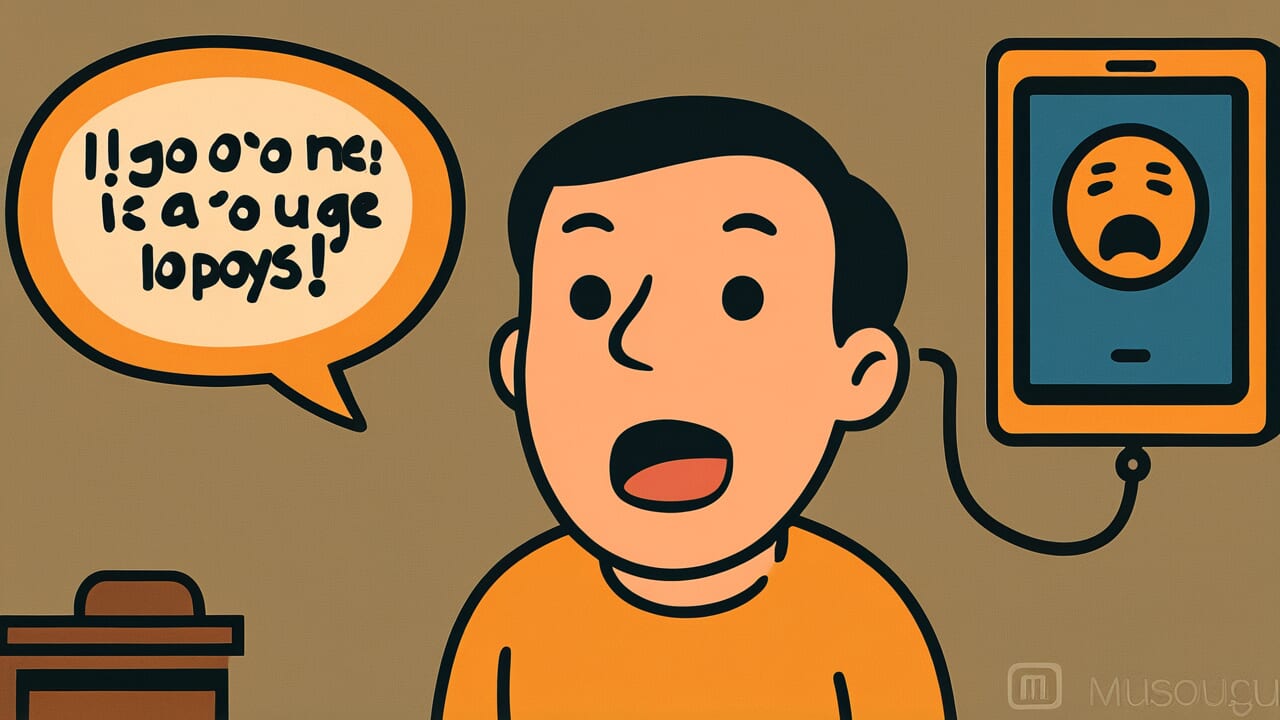How to Read “Speak what you think”
Speak what you think
[speek wot yoo thingk]
All words use common pronunciation.
Meaning of “Speak what you think”
Simply put, this proverb means you should say what you truly believe instead of hiding your real thoughts.
The literal words are straightforward. “Speak” means to talk or express yourself. “What you think” refers to your actual opinions and beliefs. Together, they encourage honest communication. The deeper message is about being authentic in your conversations with others.
We use this wisdom when facing difficult conversations. Someone might need to give feedback at work or share concerns with friends. It applies when you disagree with popular opinions. The proverb reminds us that honest communication builds stronger relationships than polite lies.
What’s interesting about this wisdom is how it challenges our natural instincts. Most people want to be liked and accepted. Speaking your true thoughts can feel risky. However, people often discover that honesty creates deeper connections. Others respect authenticity more than they appreciate fake agreement.
Origin and Etymology
The exact origin of this specific phrase is unknown. However, the concept appears in various forms throughout recorded history. Ancient philosophers and writers have long debated the value of honest speech versus diplomatic silence.
This type of saying became important during times when free speech was limited. People lived under strict social rules about what they could say. Speaking your mind could lead to serious consequences. Yet the human desire for authentic expression remained strong.
The phrase spread through oral tradition and written works. Different cultures developed similar sayings about honest communication. As societies became more open to diverse opinions, this wisdom gained new relevance. It evolved from a dangerous act to a valued principle in many communities.
Interesting Facts
The word “speak” comes from Old English “specan,” meaning to talk or say words. “Think” derives from Old English “thencan,” originally meaning to conceive in the mind. This proverb uses simple, direct language that has remained largely unchanged for centuries. The straightforward structure makes it easy to remember and repeat.
Usage Examples
- Manager to employee: “You seem hesitant about the new project during our meetings – Speak what you think.”
- Coach to player: “You keep nodding but look confused about the strategy – Speak what you think.”
Universal Wisdom
This proverb touches on a fundamental tension in human nature between authenticity and social acceptance. Throughout history, people have struggled with when to reveal their true thoughts and when to remain silent. This internal conflict exists because humans are both individual thinkers and social creatures who need group belonging.
The drive to speak our thoughts stems from our need for authentic self-expression. When we constantly hide our real opinions, we feel disconnected from others and ourselves. Our minds naturally want to share ideas, test them against other perspectives, and refine our understanding. Suppressing this urge creates psychological stress and prevents genuine relationships from forming.
Yet the fear of speaking honestly also serves an important purpose. Our ancestors learned that careless words could lead to conflict, rejection, or danger. This caution helped communities maintain harmony and individuals avoid unnecessary risks. The wisdom recognizes that while self-censorship can protect us, it also limits our growth and connections. The proverb suggests that the benefits of honest communication often outweigh the risks, especially when we speak thoughtfully rather than impulsively.
When AI Hears This
Your brain works like a computer with limited memory space. Every time you say something different from your thoughts, you create extra files. These files must be stored, updated, and kept separate from each other. Most people don’t realize how much mental energy this actually costs them daily.
This hidden brain tax explains why filtered speech feels so exhausting over time. Your mind constantly runs background programs to track different conversation versions. It cross-checks what you told different people about the same topic. This leaves less brain power for creative thinking and problem solving activities.
The fascinating part is how humans choose this harder path without realizing it. Speaking your actual thoughts requires zero extra mental storage or tracking systems. Yet people instinctively pick the option that overloads their brain’s processing capacity. This reveals something beautiful about human nature: you’ll sacrifice mental efficiency for social connection.
Lessons for Today
Living with this wisdom requires developing the courage to be authentic while learning when and how to share your thoughts effectively. The challenge isn’t just about speaking up, but about doing so in ways that build understanding rather than create unnecessary conflict. This means choosing your moments and considering your audience without compromising your core honesty.
In relationships, this wisdom transforms how we connect with others. Instead of agreeing just to keep peace, we learn to express disagreement respectfully. We discover that people often appreciate honesty more than false harmony. Friends and colleagues begin to trust our words because they know we say what we mean. This creates deeper, more meaningful relationships built on genuine understanding.
The difficulty lies in overcoming our fear of rejection and learning to communicate thoughtfully. Speaking what you think doesn’t mean saying every thought that crosses your mind. It means being honest about things that matter while considering the impact of your words. With practice, this becomes less about forcing yourself to speak and more about naturally expressing your authentic self. The reward is living with integrity and building relationships based on truth rather than pretense.



Comments